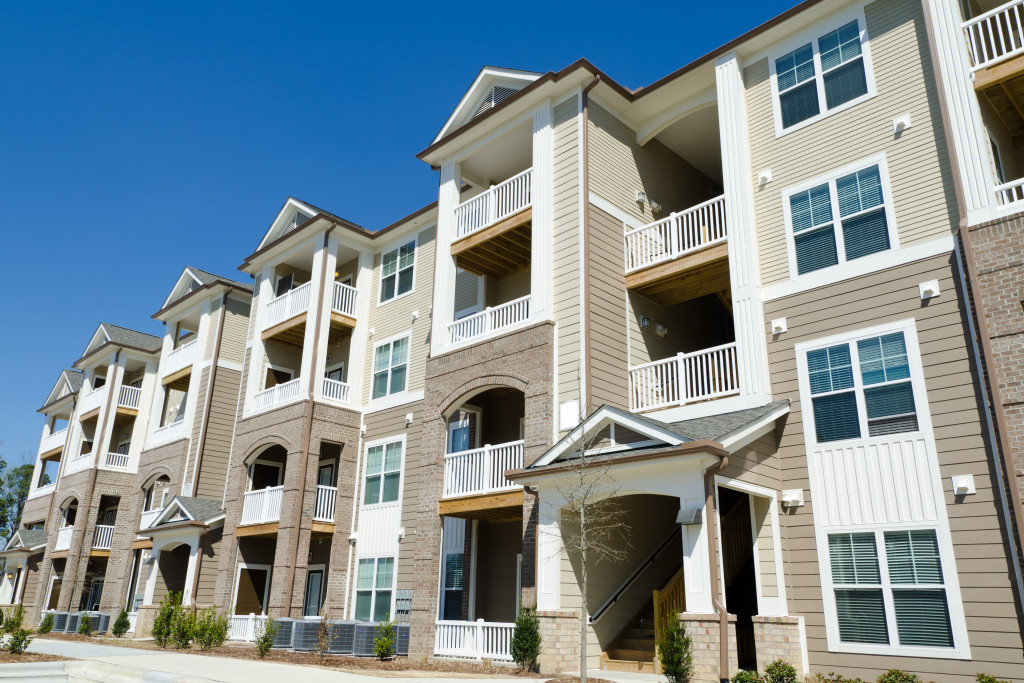According to a recent study by the Joint Center for Housing Studies at Harvard University, more than 41 million renters in America make up 35 percent of all households. The number of renters has been increasing for decades as more people choose to rent rather than buy homes. This trend will likely continue as the cost of purchasing a home increases and the availability of affordable rental units decreases.
This trend represents a massive opportunity for anyone looking to start an apartment rental business. Not only is the market for rentals growing, but it is also becoming increasingly competitive. To be successful, you’ll need to offer quality properties and excellent customer service. But if you manage this, you can enjoy a profitable and passive income stream from your rental business.
Here are some statistics to back up this claim:
- The average occupancy rate for rental units is 94 percent, meaning that your units will almost always be complete.
- The average rent for a one-bedroom apartment is $1,036 per month.
- The average rent for a two-bedroom apartment is $1,269 per month.
- Renters stay in apartments for an average of 26 months.
As you can see, there is a lot of potential for profit in the apartment rental business. If you’re looking for a passive income strategy with a lot of upside potential, this is it! However, being a landlord will force you to take on specific responsibilities. Here are the duties for what’s ahead.
Keeping the Peace
As a landlord, you must maintain a peaceful environment in your rental property. This step will ensure that your tenants are happy and don’t feel uncomfortable or unsafe living there. It will also help to maintain your good reputation as a landlord.
If there is ever an issue with noise or violence on your property, take steps to address it immediately. It may include evicting the tenants responsible or levying fines. Remember that you want to create a safe and comfortable environment for all of your tenants, not just the ones who are easy to get along with, making you look biased.
One step to help keep the peace is to require all guests to register with you before they visit. It will allow you to screen visitors and ensure they won’t cause any problems. You can also require that all visitors sign in and out so that you know who is on your property at all times.
Maintaining the Property
As a landlord, you are responsible for maintaining the property well. This includes making repairs promptly, keeping the common areas clean, and ensuring that the landscaping is well-maintained.
You should create a maintenance schedule and stick to it as closely as possible. It will help you track when various tasks need to be completed and ensure that they get done promptly.
It would help if you also had a solid plan for dealing with emergency repairs. It may include having a 24-hour hotline that tenants can call, providing them with a list of reputable repair services, or having a handyman on call.
Unfortunately, you might not know where to start, and it might be too late by the time you find out. You can start with getting an electrical installation condition report (EICR) to ensure electrical safety. The EICR test can also help you find potential hazards in your property before they cause any problems.
After that, you can focus on general maintenance tasks like painting, fixing leaks, and unclogging drains. These tasks will help keep your property in top condition and make it more comfortable for your tenants to live there.
Enforcing the Lease

As a landlord, you must also enforce the lease agreement. This step includes collecting rent on time, handling deposits, and dealing with late payments.
You should have a system in place for collecting rent. It may include setting up an automatic withdrawal from tenants’ bank accounts or using an app like RentMatic. You should also require that all rent be paid in full and on time.
If a tenant falls behind on rent, you should take action immediately. It may include sending a reminder notice or evicting the tenant if they don’t catch up.
You should also require that all tenants put down a security deposit. The deposit will cover any damage that the tenant causes to your property. It’s essential to keep the promise in a separate account and only use it for repairs.
You should also conduct regular inspections of your rental units. This will allow you to identify potential problems early on and take care of them before they become more significant.
Dealing with problem tenants is one of the most challenging aspects of being a landlord. However, it’s important to remember that you’re running a business, and problem tenants can hurt your bottom line.
Final Thoughts
Being a landlord is a big responsibility. However, it can be an enriching experience if you prepare for it. If you take the time to learn about your rights and responsibilities, maintain your property well, and enforce the lease agreement, you’ll be on your way to being a successful landlord.

